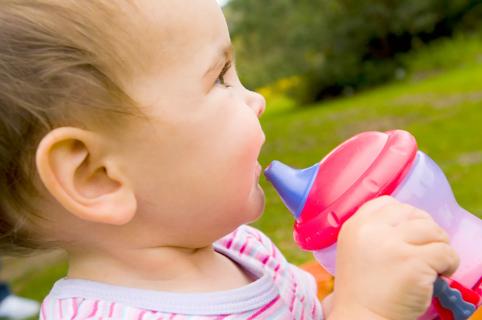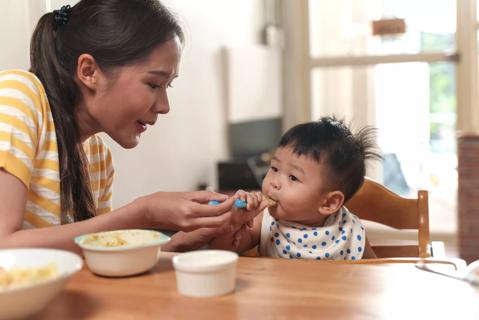Parents may not realize which processed foods it's hiding in

Eating too many added sugars has been linked to increased risk of obesity, diabetes and heart disease. And according to a recent study, Americans’ addiction to sugar may be starting before little ones reach their first birthday.
Advertisement
Cleveland Clinic is a non-profit academic medical center. Advertising on our site helps support our mission. We do not endorse non-Cleveland Clinic products or services. Policy
Pediatric dietitian Jennifer Hyland, RD, didn’t take part in the research, but says it shows just how much added sugar toddlers are actually taking in.
“In kids ages six to 11 months, so under a year old, they were actually consuming about 60% of their sugar from added sugar,” Hyland explains. “That means they’re not getting it from fruits and vegetables naturally, but they’re getting it from foods that have the sugar added to it.”
The study looked at more than 800 children between the ages of six months and 2 years. Researchers found that 99% of toddlers between 19 months and 2 years consumed an average of more than seven teaspoons of added sugar each day ― that’s more than what’s recommended for a child over the age of 2.
Hyland says parents are often surprised by how much sugar is hiding in foods that might seem healthy at first glance. She says added sugars often lurk in places like juice, yogurt, granola bars, applesauce and even peanut butter.
She recommends parents take the time to read the nutrition label to see just how much added sugar is in products. And, whenever possible, stick to whole, nonprocessed foods.
Hyland says it’s important to get a child’s taste buds off to a healthy start, rather than getting them used to added sugar at such a young age.
Advertisement
“You have unsweetened applesauce or natural peanut butter that are great healthy, nutritious options,” she says. “But then you have other alternatives, unfortunately, that have the sugar added to them. And if kids are started on that young, that’s what they end up liking.”
It’s recommended that children under the age of 2 should have no added sugar ― and children over age 2 should have no more than 25 grams (or six teaspoons) of added sugar per day, Hyland says.
She adds that natural sugar, like that found in fresh fruit, is OK and doesn’t count toward the daily limit.
Results of the study were presented at Nutrition 2018, the annual meeting of the American Society for Nutrition.
Advertisement

Sign up for our Health Essentials emails for expert guidance on nutrition, fitness, sleep, skin care and more.
Learn more about our editorial process.
Advertisement

In babies under 12 months old, cow’s milk has been associated with gastrointestinal bleeding

No juice until your child is 1 year old — and even then, they shouldn’t have much, if any

Ultimately, the choice depends on what works best for you and your baby, but it’s also important to be aware of the pros and cons of both

Ideally, you want your toddler to be drinking from a ‘big kid cup’ by age 2

Letting your baby feed themself foods the whole family enjoys has its benefits — but stick to softer foods and follow safe-eating guidelines

Levels are generally low, but there are ways to minimize potential health risks

Slowly introducing cow’s milk (or soy milk) can help your child make the change

In babies under 12 months, honey may cause a serious illness called infant botulism

Even small moments of time outdoors can help reduce stress, boost mood and restore a sense of calm

A correct prescription helps your eyes see clearly — but as natural changes occur, you may need stronger or different eyeglasses

Both are medical emergencies, but they are very distinct events with different causes